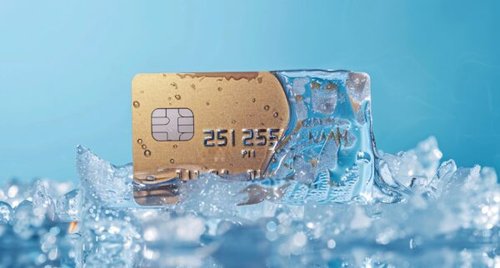Once upon a time, building credit was a grind. First, you’d need to find a card issuer willing to accept your less-than-stellar credit score, which usually meant getting a secured card with a low credit limit and no rewards. Then, it could take a year or more before you could graduate to an unsecured account.
My, how things have changed.
The next generation of credit card issuers is designing accounts that recognize a fair or limited credit score shouldn’t mean you’re stuck with a boring card. These new cards have fun websites, snazzy apps and easy-to-use money management tools. What’s more, some issuers are using new approaches to qualify applicants for unsecured cards, and you can even get rewards with some secured cards nowadays.
Keep reading for a look at the changing face of credit-building cards.
Credit cards with no credit checks
A credit check has long been the standard way companies determine whether to approve a card application. For those with limited or low credit scores, these inquiries can hurt in two ways: Not only can a low number mean a rejected application, but the credit inquiry itself can further drop someone’s score by a few points.
Fortunately, some cards geared toward those rebuilding credit recognize this problem and have done away with credit checks. Some of these include:
- Secured Chime Credit Builder Visa® Credit Card
- Secured Sable ONE Credit Card
- The Card with No Credit Check - The Secured Self Visa® Credit Card1
Chime was one of the early adopters of this approach and offers the Chime Card(TM) without requiring a credit check. Accountholders need a Chime® Checking Account to apply, and money from the checking account can be transferred to the Chime Card(TM). Money added to Chime Card™ will be held in a secured deposit account as collateral for your Chime Card, and you can spend up to this amount. You can use money deposited in your Secured Deposit Account to pay off your charges at the end of every month.
The Secured Sable ONE Credit Card is another account that doesn’t require a credit check. What’s more, cardholders can graduate to an unsecured card in as little as four months. The Secured Sable ONE Credit Card is also on the forefront of another trend: rewards cards for fair credit.
Secured credit cards offering rewards
In the past, credit card rewards were usually reserved for those with very good or excellent credit. Things are different now with even some secured credit cards offering rewards.
Some secured credit cards offering cash back on purchases include:
- Capital One Quicksilver Secured Cash Rewards Credit Card
- Discover it® Secured Credit Card
- Secured Sable ONE Credit Card
There are also unsecured cards geared toward those with fair credit that also offer rewards. Here are a few examples:
- CardName (Petal credit cards are issued by WebBank, Member FDIC; See Rates and Fees)
- CardName (Petal credit cards are issued by WebBank, Member FDIC; See Rates and Fees)
- Upgrade Cash Rewards Visa®This offer is no longer available.
Some of these cards offer cash back only on specific purchases while others provide cash back on all purchases. For instance, the Petal® 1 card awards up to 10% cash back at select merchants via offers loaded onto the card. Meanwhile, the Petal® 2 has special offers for up to 10% cash back as well, but it also gives accountholders up to 1.5% cash back on all purchases when they make payments on time.
➤ FURTHER READING:Tools for building credit: Credit builder accounts, secured cards
Innovative credit building tools
While the type of cards available to those rebuilding credit is expanding, equally notable are the tools now offered to help cardholders manage their money. From easy-to-use apps to credit building loans, here are some of the approaches being taken by today’s credit cards:
Upgrade Visa®: Normally, when you use a credit card, your purchases are deducted from your available credit line. Then, you must make minimum payments that are usually based on a percentage of the total amount you owe. However, Upgrade Card treats each purchase as its own loan and uses a fixed repayment schedule that can save money on interest and help you pay off your balance quicker.
Self Secured Visa: To get the Self Visa, you first need to open a Credit Builder Account which is a loan designed specifically to help boost your credit score. After you’ve made three monthly payments and accumulated at least $100 or more in savings, you can move a portion of your savings to be used as a security deposit for the Self Visa. Oh, and once you pay off the credit builder loan, all your payments – minus any fees – are returned to you.
Petal® 1 and Petal® 2: Both Petal® credit cards come with an app that goes beyond listing your balance and scheduling payments. It lets cardholders create a budget, track how much they spend and monitor their credit score. Plus, the app is designed to let you know what cash-back opportunities are nearby and how close you are to receiving a credit line increase.
What’s more, it’s now standard for many credit card companies to offer videos, articles and calculators on their websites to encourage responsible credit card use and help you manage your finances.
The future of credit builder cards
With so much innovation happening in the credit card space, you may be wondering what comes next. While there is no telling for sure, you may see the following trends:
- Applications requiring bank information: Your credit score doesn’t tell the complete story of your finances, and if your score is low, companies might still be willing to give you an unsecured card if you let them peek into your bank account. This is already being done by some cards such as the Jasper Cash Back Mastercard.
- Extra perks: Now that rewards are becoming more mainstream for secured cards and cards for fair credit, welcome bonuses and other perks may be next. The Secured Sable ONE Credit Card, for instance, offers cell phone damage protection and rental car insurance, benefits that were previously only available on higher tier cards.
- Higher credit limits: The days of being restricted to credit limits of a couple hundred dollars while rebuilding your credit seem to be disappearing. Many cards, even unsecured cards, are offering higher limits to those with lower credit scores. Limits for Petal® 1 can be as high as $5,000 while Petal® 2 may extend up to $10,000 worth of credit.
- Faster credit building: They say slow and steady wins the race, but some credit cards are making it easier to boost scores quickly. The Secured Sable ONE Credit Card, for example, begins reporting your credit history the month after you start using your card and cardholders have the opportunity to graduate to an unsecured card in as little as four months.
Lower fees and interest rates may be among the other trends we’ll see in cards for rebuilding credit. What won’t change though are the basics of good credit management: Don’t charge more than you can afford to repay and make timely payments each and every month. In the end, nothing will help your credit score more than that.


